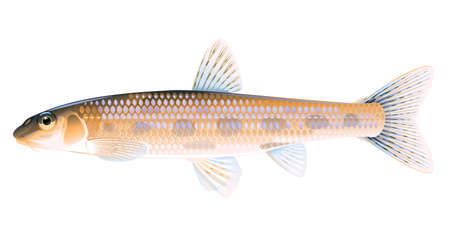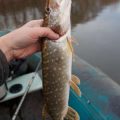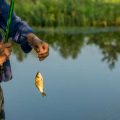Introduction to UK Rod Licence Enforcement
If you’ve ever spent a misty morning casting a line into one of Britain’s tranquil rivers or bustling canals, you’ll know that angling is as much a part of UK culture as a cuppa at dawn. But behind these peaceful scenes lies a robust framework designed to protect our aquatic wildlife and ensure everyone enjoys fair access to the nation’s fisheries. At the heart of this framework is the enforcement of rod licences—a legal requirement for anyone fishing for salmon, trout, freshwater fish, smelt, or eel with a rod and line in England (except the River Tweed), Wales, and the Border Esk in Scotland. This enforcement isn’t just about bureaucracy; it plays a pivotal role in managing fish stocks, funding habitat restoration, and supporting conservation projects. By ensuring anglers contribute through licence fees, authorities like the Environment Agency can maintain healthy waterways, tackle illegal fishing, and secure the future of our cherished angling traditions. Whether you’re a seasoned angler or new to the bankside, understanding why and how rod licence enforcement operates offers vital insight into responsible fishing—and what to expect if an inspector happens by your peg.
2. Spot Checks: How and Where They Happen
If you’re planning a day out fishing in the UK, being prepared for a rod licence spot check is simply part of the experience. The Environment Agency (EA) takes enforcement seriously, and their officers are well-versed in conducting checks across the country’s rivers, lakes, and canals. Spot checks are typically unannounced, designed to catch anglers off guard and ensure everyone is playing by the rules.
How Spot Checks Are Conducted
EA officers usually operate in pairs or small groups, often dressed in official attire or branded clothing that clearly identifies them. They may approach you directly on the bank or jetty, politely introduce themselves, and ask to see your valid rod licence. In most cases, the process is straightforward—if you have your documentation ready, it’s a quick check and you’ll be on your way. If not, further questions may follow.
Common Locations for Spot Checks
| Location Type | Examples |
|---|---|
| Rivers | The Thames, River Severn, Avon |
| Lakes & Reservoirs | Lake District waters, Grafham Water |
| Canals | Grand Union Canal, Leeds & Liverpool Canal |
| Popular Fisheries | Commercial fisheries throughout England and Wales |
What to Expect During an Encounter
Most EA officers are friendly but professional—they understand that many anglers are responsible enthusiasts. You’ll be asked to show your physical or digital rod licence, and possibly answer questions about your catch or fishing methods. If you cannot produce a valid licence on the spot, you may be given a short window (usually 48 hours) to present it at a police station or face potential penalties. Remember: refusing to cooperate can escalate matters quickly.
Being aware of these procedures ensures a smoother experience and helps maintain the integrity of the UK’s cherished angling tradition.

3. Penalties for Fishing Without a Rod Licence
If youre caught fishing in the UK without a valid rod licence, you could be in for more than just a stern talking-to by the waters edge. Enforcement officers from the Environment Agency or Natural Resources Wales conduct regular spot checks and have the authority to ask anglers to produce their licences on demand.
Typical Fines Imposed
The most immediate consequence of fishing without a licence is a financial penalty. First-time offenders can face an on-the-spot fine, but matters can quickly escalate if the case goes to court. The maximum fine currently stands at £2,500—a hefty sum that reflects the seriousness with which authorities treat this offence. These fines are not simply symbolic; there are documented cases every year of anglers receiving significant penalties for failing to comply.
Legal Ramifications Beyond Fines
Beyond monetary penalties, being prosecuted for fishing without a rod licence can result in a criminal record, which may have lasting effects on your reputation and future opportunities. Repeat offenders or those caught with multiple unlicensed rods may find themselves facing even stiffer consequences, including higher fines and potential confiscation of fishing equipment.
The Broader Impact on Angling Privileges
Its also worth noting that getting caught without a licence can lead to exclusion from certain angling clubs or syndicates, as many organisations uphold strict codes of conduct regarding legal compliance. Furthermore, the embarrassment of being publicly named and shamed in local media—something not uncommon in enforcement crackdowns—can be an unwelcome addition to the official penalties handed down by the courts.
In short, fishing without a rod licence in the UK is not worth the risk: it threatens your wallet, your legal standing, and your standing within the angling community. Always ensure you’re properly licensed before casting off on British waters.
4. Legal Process and Your Rights
When an angler is found fishing without a valid UK rod licence, the subsequent legal process is clear-cut, but knowing your rights can make all the difference. Here’s what typically happens after a breach is identified during spot checks by Environment Agency officers.
Receiving a Fixed Penalty Notice or Court Summons
If you’re caught without a licence, you’ll usually be issued with a fixed penalty notice (FPN) on the spot or shortly afterwards by post. This notice outlines your alleged offence and details how to pay the fine, which can be up to £2,500 if escalated to court. In more serious cases—or if the FPN is ignored—a court summons may follow, requiring you to appear before a magistrate.
| Step | Description | Your Action |
|---|---|---|
| Spot Check | Officer requests to see your rod licence while you fish | Provide identification and licence if available |
| Notice Issued | Receive FPN or warning for breach of regulation | Read notice carefully; retain copy for records |
| Court Summons (if applicable) | If unresolved, you may be summoned to magistrates’ court | Seek legal advice and prepare your case or defence |
Your Rights During Enforcement
Anglers in the UK have the right to:
- Request Identification: Always ask enforcement officers for their official ID before complying with any requests.
- Avoid Self-Incrimination: You are not obliged to answer questions that could incriminate you. Give your name and address as required by law.
- Receive Written Details: Any penalty or summons must be provided in writing—verbal threats hold no legal weight.
- Appeal Process: If you believe a mistake has been made, you have the right to challenge the notice through the proper channels before any payment or court appearance.
- Legal Representation: For more serious breaches resulting in prosecution, it’s advisable to consult with a solicitor experienced in fisheries law.
The Importance of Due Process
The UK’s approach to rod licence enforcement is designed to be fair and transparent. Officers are expected to conduct themselves professionally, respecting both anglers’ rights and environmental regulations. Knowing these procedures—and your place within them—ensures that even if you find yourself on the wrong side of a spot check, you remain informed and empowered throughout the process.
5. How to Avoid Falling Foul of the Rules
Navigating rod licence requirements in the UK is straightforward once you know the ropes, but a little practical preparation goes a long way in avoiding unnecessary run-ins with enforcement officers. Here’s how you can ensure your paperwork is always spot on, your licence easily accessible, and your fishing sessions stress-free and entirely above board.
Keep Your Licence Up to Date
The golden rule is simple: never head out with your tackle unless your rod licence is valid. For most anglers, this means renewing every April—set yourself a reminder or opt for an auto-renewal if available. Whether you prefer a digital or paper copy, make sure it’s current and matches the type of fishing you’re doing, be it coarse or salmon and trout.
How to Check Your Licence Status
Before setting off, double-check your details on the Environment Agency’s official website. It only takes a moment to log in and confirm your status. If you’ve opted for a digital licence, consider keeping a screenshot on your phone or printing a hard copy as backup—mobile signal isn’t always reliable beside rural waters.
Carry Identification
While enforcement officers can verify licences electronically, carrying photo ID helps speed up any checks, especially if names or dates of birth need clarifying. A driver’s licence or passport will do nicely—think of it as another essential bit of kit in your rucksack.
Stay Informed on Local Regulations
Rules can differ between regions and water types. Some fisheries require additional permits or club memberships, so always check signage at your chosen venue or consult local angling associations. Don’t hesitate to ask bailiffs or fellow anglers if you’re unsure—most are more than happy to help newcomers stay compliant.
Plan Ahead for Peace of Mind
A bit of preparation ensures all focus stays where it should: enjoying nature and honing your craft. Double-checking paperwork before each trip soon becomes second nature, like packing your favourite flask or choosing the right fly for the hatch. With these habits in place, you’ll avoid fines—and keep your reputation as a respectful steward of Britain’s treasured waterways intact.
6. The Wider Impact: Conservation and Community
Enforcing rod licence requirements does more than simply keep anglers in line—it forms the backbone of sustainable fishing across the UK. Every time an angler purchases a rod licence, they directly contribute to vital funding for the Environment Agency and local fisheries trusts. These funds are funnelled back into maintaining healthy fish populations, restoring habitats, and improving river access—ensuring that our cherished rivers, lakes, and canals remain vibrant for generations.
Spot checks and enforcement aren’t just about penalties; they send a clear message about the importance of responsible angling. By deterring unlicensed fishing, enforcement officers help protect fragile fish stocks from overexploitation. This is crucial for native species such as barbel, grayling, and brown trout, whose numbers can quickly dwindle if left unchecked. Regular monitoring and compliance also allow authorities to spot signs of pollution or invasive species early, safeguarding entire ecosystems.
Beyond ecology, rod licence enforcement nurtures a sense of community among anglers. Those who play by the rules often take pride in upholding traditions of stewardship—reporting poaching or illegal activity when spotted. This collective responsibility fosters a culture where ethical fishing is the norm, not the exception. Local angling clubs, working alongside regulatory bodies, frequently run educational events to promote best practice and ensure newcomers understand their obligations before casting off.
Ultimately, robust enforcement helps balance enjoyment with preservation. It ensures that tranquil mornings on the bank—rod in hand—remain a fixture of British life. Whether you’re tying on a fly at first light or sharing stories at your local tackle shop, knowing that everyone is doing their part creates a stronger, more resilient angling community where both nature and tradition can flourish.


